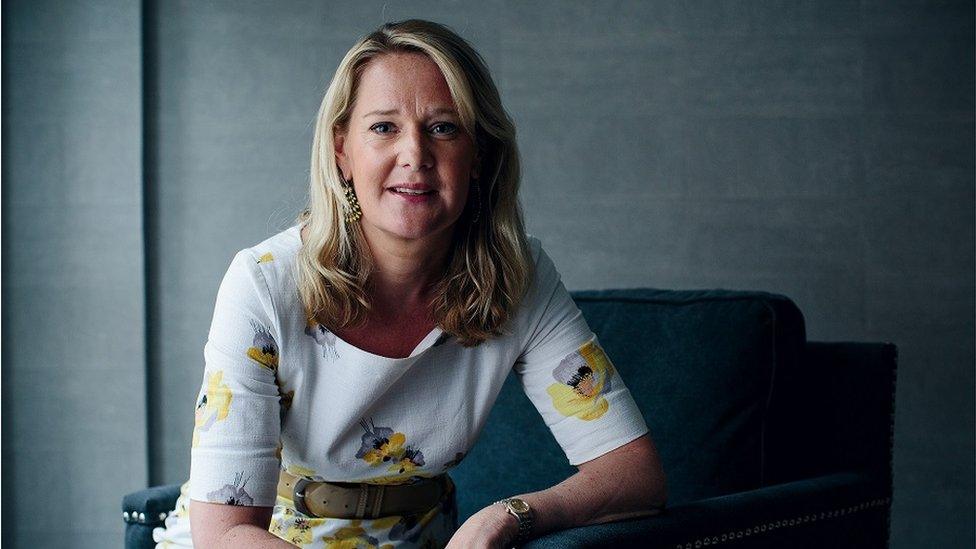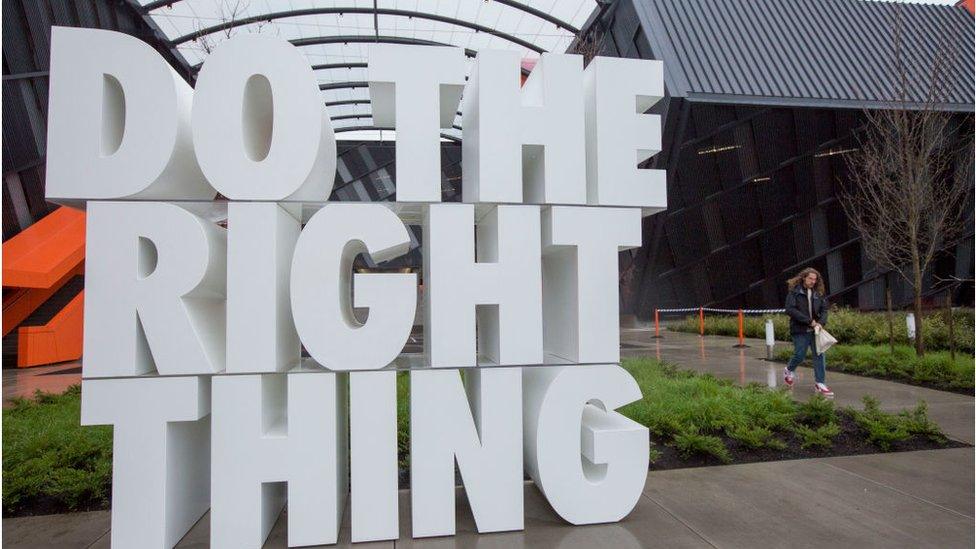Firm offers staff unlimited leave to stop burnout
- Published
- comments

Workers at a London stockbrokers will have unlimited holiday from next year to try to prevent staff burnout.
Finncapp employees will have to take a minimum of four weeks leave plus two or three days every quarter.
Unlimited paid holiday is a perk popular among some US tech firms but less so among financial services companies.
For some companies it works well, increasing productivity, but others found staff took less time off.
'Fed up'
Finncapp, which also gives financial advice, has been "exceptionally busy" as City mergers and capital markets boom, chief executive Sam Smith told the BBC.
Ms Smith said the company really started to notice how much mental health strain employees were under in February this year.
On Zoom calls, people were getting frustrated and some were not wanting to communicate.
"People were fed up and had no resilience left because of having been in the pandemic for a long time," she said.
Staff had worked very long hours from home in the pandemic, especially during lockdowns, and the "lines between work and life became blurred", Ms Smith said.
"There were no boundaries, no respite, it was just constant," she said, not only in her company but in others.

FinnCap's boss Sam Smith says some staff were getting frustrated during Zoom calls
And because everyone else was working, that put more pressure on people to just keep working, she said.
By June, mental health pressures were starting to hit employees' physical health, with people taking time off, and the company decided to change its working practices.
From 1 January, staff will have to take minimum leave, and that does not include time off to care for sick parents, children or pets, or time off for parents evenings or to deal with household problems such as a broken boiler.
"All these things are not holiday," Ms Smith said.
The company decided to set out minimum amounts of leave that must be taken - which was first reported by Bloomberg, external - as the fear was that just having a blanket policy of offering unlimited leave could backfire.
'Zoom fatigue'
That is what happened at software firm CharlieHR, where an unlimited leave policy led to staff not taking enough holiday.
"The reality is that it's not actually unlimited," chief operating officer Ben Gately previously told the BBC.
Other firms have been trying to deal with workplace stress by giving workers some time off.
Dating app Bumble temporarily closed its offices in June for a week to combat workplace stress.
It brought in a policy where twice a year there is a week-long company-wide holiday. Employees have unlimited paid leave and UK workers must take 24 days holiday.
"Our teams were expressing Zoom fatigue, as well as actual burnout," said Tariq Shaukat, president of Bumble.
"The stress comes from always being connected but when working from home, or vacationing, there's always a feeling of 'what am I missing'?"
In April, LinkedIn shut down for a week, giving nearly all of its 16,000 employees a break.
Nike headquarters staff in Oregon also got a week off in August to support their mental health.
- Published30 August 2021

- Published22 June 2021
